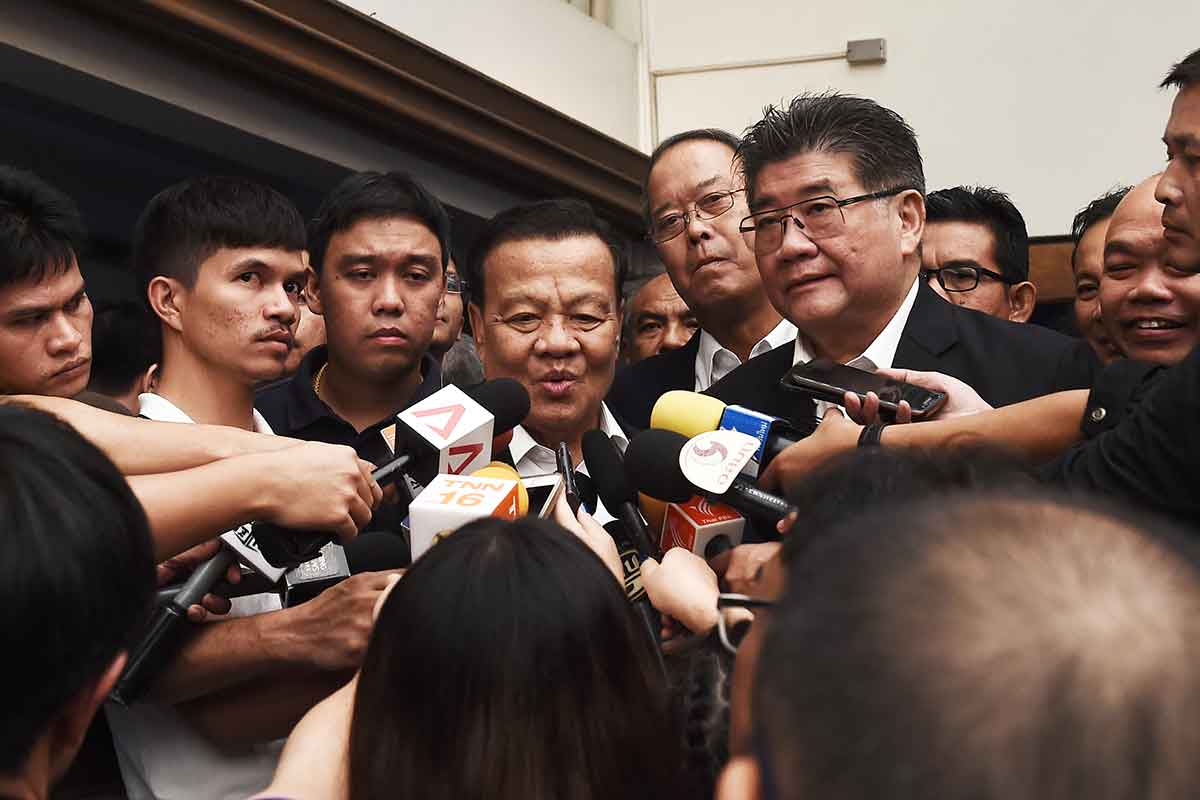Thailand’s Pheu Thai party has chosen 86-year-old senior party member Viroj Pao-in to lead the country’s main opposition party to challenge the ruling junta as it prepares for upcoming elections which are slated to take place in February next year.
The party, which was founded by ousted premier, Thaksin Shinawatra said that it was “confident of success” ahead of the polls which have been postponed multiple times since the 2014 military takeover spearheaded by the country’s current Prime Minister, Prayut Chan-o-cha.
Viroj’s election was credited in part to him soldiering on with the party through tough times. However, the party declined to reveal who it intends to select as its candidate for Prime Minister.
The Pheu Thai party has been a notable fixture in Thailand’s democratic landscape. It backed two former Prime Ministers, most recently Yingluck Shinawatra – sister to Thaksin Shinawatra – who, like her brother remains in self-exile outside the kingdom.
Yingluck, who was ousted in a military coup fled the nation days before she was set to stand trial for criminal negligence due to a failed rice subsidy scheme. However, the courts went ahead and sentenced her to five years in prison in absentia and subsequently issued a warrant for her arrest.
The party which has long forwarded populist and welfare driven agendas still maintains a significant share of support from Thais which does not sit well with Bangkok’s military-aligned elite. However, without the star power of the Shinawatra clan on their side now, it remains to be seen whether the Pheu Thai party would be able to amass the same degree of support as it did for previous elections.
Nevertheless, it can likely capitalise on concerns amongst Thais who are fast losing patience with military rule. Under the junta, ordinary Thais have seen growing inequality which has eroded Thailand’s long-term economic outlook.
Since assuming power, the junta has postponed the date of the elections at least four times, further delaying the country’s long expected return to civilian democratic rule. Political parties have also been placed under a partial political ban, which disallows them from campaigning or holding rallies.

Source: Various
Will the junta give in?
Thailand’s junta government is showing no signs that they intend to relax their grip on power but that doesn’t necessarily translate to them postponing the elections yet again at the risk of another bout of civilian unrest.
Instead, the unelected Prayut is now fashioning for himself a new political image as opposed to his military persona in a bid to project himself as a possible candidate for the premiership. Having previously skirted around questions pertaining to his interest in politics, Prayut has since come out to say that he is indeed “interested in politics” because he loves his country.
Under the constitution, Prayut would have to resign from his position in order to stand for elections but reports have indicated that he doesn’t intend to quit as junta chief. He could, however, be chosen as Prime Minister if he is nominated by a political party. Otherwise, he could assume power as an “outsider Prime Minister” if no clear candidate is selected by Parliament.
Even if that fails and a civilian Prime Minister is elected, the country’s return to a full-fledged democracy would be hindered by other constitutional factors. The country’s 20th constitution in less than a century – written by the junta after the latest coup – stipulates certain checks on power which could affect future civilian governments.
Of primary concerns are the one-third military quota in Parliament and a constitutional requirement that the government and parliament adhere to the junta’s 20-year reform plan. The plan has come under severe criticism for restricting policymaking especially if a newly elected civilian government intends to embark upon a long-term reform agenda.
It remains to be seen if the Pheu Thai party would be able to surmount a challenge strong enough to unseat and unravel the changes made by the junta to the landscape of Thai politics. If the country’s history has indicated anything, it is that change to that extent is rarely achievable without mass civilian unrest.
For now, it seems that Prayut’s junta is doing all it can to shore up public support. It seems unlikely that elections would be called until the junta is fully confident of an electoral victory.
Related articles:
Did Prayut just checkmate the opposition?
Thailand relaxes political activity ban
